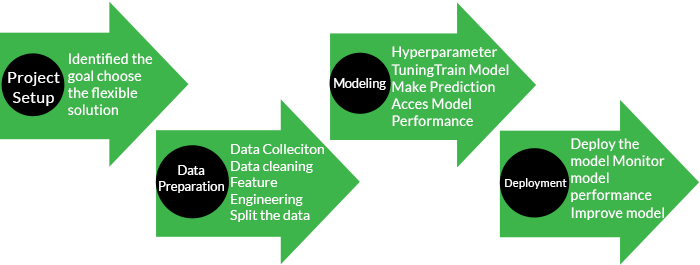Carriers in Machine Learning: Navigating the Future of AI
Carriers in Machine Learning: Navigating the Future of AI
Introduction
Machine learning (ML) is a rapidly evolving field within artificial intelligence (AI) that focuses on developing algorithms and statistical models that enable computers to learn from and make predictions or decisions based on data. As the demand for AI talent continues to grow, so do the career opportunities in this exciting field. In this blog, we'll explore some of the top career paths in machine learning, the skills required, and the future outlook for professionals in this domain.
Top Career Opportunities in Machine Learning
Machine Learning Engineer: Responsible for designing and implementing ML models, working closely with data scientists and software engineers to integrate ML solutions into applications.
Data Scientist: Focuses on analyzing and interpreting complex data sets to identify patterns and insights, often using ML techniques to build predictive models.
AI Specialist/Developer: Develops and implements AI solutions, including ML algorithms, neural networks, and natural language processing, to enhance and automate processes across various industries.
Research Scientist: Conducts research to advance the field of ML, exploring new algorithms, techniques, and applications.
Product Manager: Oversees the development and deployment of ML-based products, ensuring they meet user needs and business goals.
ML Engineer in Healthcare: Applies ML techniques to improve healthcare outcomes, such as predicting patient diagnoses and personalizing treatment plans.
ML Engineer in Finance: Uses ML to detect fraud, optimize trading strategies, and improve risk management.
ML Engineer in Retail: Enhances customer experience through personalized recommendations, inventory management, and demand forecasting.
ML Engineer in Cybersecurity: Develops ML models to detect and prevent cyber threats, enhancing security measures.
ML Engineer in Robotics: Integrates ML into robotic systems to improve automation, navigation, and decision-making.
Skills and Qualifications
To excel in these roles, professionals need a strong foundation in computer science, mathematics, and statistics. Key skills include:
Proficiency in programming languages such as Python, R, and Java.
Experience with ML libraries and frameworks like TensorFlow, PyTorch, and scikit-learn.
Knowledge of machine learning algorithms, deep learning architectures, and statistical methods.
Strong data preprocessing, feature engineering, and data visualization skills.
Ability to work collaboratively with cross-functional teams.
Future Outlook
The demand for ML professionals is expected to continue growing as industries increasingly adopt AI technologies. According to recent reports, AI job hiring has increased significantly, with salaries for AI specialists often surpassing those of traditional IT roles. As the field expands, new opportunities will emerge, making it an exciting time to pursue a career in machine learning.
Conclusion
Machine learning is a dynamic and rewarding field with a wide range of career opportunities. Whether you're interested in developing cutting-edge AI solutions, conducting groundbreaking research, or applying ML techniques to real-world problems, there's a path for you in this rapidly growing industry. Embrace the challenge and join the future of AI!




Comments
Post a Comment